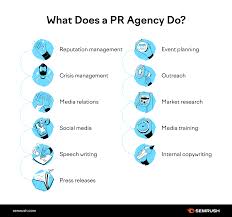Unlocking Success: The Strategic Role of an Executive in Modern Business
The Role of an Executive in Modern Business
In today’s fast-paced and competitive business environment, the role of an executive is more crucial than ever. Executives play a key role in shaping the strategic direction of a company, making critical decisions, and ensuring the overall success of the organisation.
Executives are responsible for setting goals and objectives, developing plans to achieve them, and overseeing the implementation of these strategies. They provide leadership and guidance to their teams, inspiring them to perform at their best and achieve exceptional results.
One of the primary responsibilities of an executive is to drive innovation and adapt to changing market dynamics. Executives must stay abreast of industry trends, identify opportunities for growth, and lead their organisations towards sustainable success.
Effective communication skills are essential for executives as they need to convey their vision, motivate their teams, and engage with stakeholders at all levels. Executives must also possess strong decision-making abilities, analytical skills, and a strategic mindset to navigate complex business challenges.
Furthermore, executives must demonstrate integrity, professionalism, and ethical behaviour in all their interactions. They serve as role models within the organisation and set high standards for performance and conduct.
In conclusion, executives play a pivotal role in driving business growth, fostering innovation, and ensuring organisational success. Their leadership qualities, strategic acumen, and ability to inspire others are instrumental in navigating the complexities of today’s business landscape.
Understanding the Role and Impact of Executives: Key Responsibilities, Skills, and Leadership Qualities
- What is the role of an executive in a company?
- What skills are essential for an executive to possess?
- How does an executive contribute to business growth?
- What are the main responsibilities of an executive?
- How can executives effectively lead and motivate their teams?
- What qualities make a successful executive?
What is the role of an executive in a company?
The role of an executive in a company is multifaceted and pivotal to its success. Executives are responsible for setting the strategic direction of the organisation, making critical decisions, and overseeing the implementation of plans to achieve business objectives. They provide leadership and guidance to their teams, ensuring alignment with the company’s vision and values. Executives play a key role in driving innovation, managing resources effectively, and adapting to changing market dynamics. Effective communication, strong decision-making skills, and a strategic mindset are essential qualities for executives to navigate complex business challenges and lead their organisations towards sustainable growth and success.
What skills are essential for an executive to possess?
In the dynamic realm of business leadership, executives are expected to possess a diverse set of essential skills to excel in their roles. Communication skills are paramount for executives to effectively convey their vision, inspire their teams, and engage with stakeholders. Decision-making abilities play a crucial role in guiding strategic initiatives and navigating complex challenges. Strong leadership qualities, including the ability to motivate and empower others, are vital for driving team performance and achieving organisational goals. Additionally, analytical skills, strategic thinking, adaptability to change, and a commitment to ethical conduct are key attributes that distinguish successful executives in today’s competitive business landscape.
How does an executive contribute to business growth?
Executives play a vital role in contributing to business growth through their strategic leadership and decision-making abilities. An executive’s vision and direction set the tone for the entire organisation, guiding teams towards achieving key objectives and driving innovation. By identifying new opportunities, fostering a culture of creativity and excellence, and making informed decisions based on market insights, executives can steer the company towards sustainable growth. Their ability to inspire and motivate teams, allocate resources effectively, and adapt to changing market dynamics are essential in maximising business potential and ensuring long-term success.
What are the main responsibilities of an executive?
The main responsibilities of an executive encompass a wide range of crucial tasks that are essential for the success of a business. Executives are responsible for setting strategic goals and objectives, developing plans to achieve them, and overseeing their implementation. They provide leadership and direction to their teams, ensuring that everyone is aligned towards the common goals of the organisation. Executives also play a key role in driving innovation, adapting to market changes, and identifying growth opportunities. Effective communication, decision-making skills, and a strategic mindset are vital for executives to navigate complex business challenges successfully. Ultimately, executives bear the responsibility of guiding their organisations towards sustainable growth and long-term success.
How can executives effectively lead and motivate their teams?
To effectively lead and motivate their teams, executives must demonstrate strong leadership qualities and effective communication skills. Executives should clearly define the team’s goals and expectations, provide guidance and support when needed, and empower team members to take ownership of their work. By fostering a positive work environment that encourages collaboration, innovation, and open communication, executives can inspire their teams to perform at their best. Recognising and rewarding team achievements, providing constructive feedback, and leading by example are also crucial aspects of effective leadership that can motivate team members to strive for excellence.
What qualities make a successful executive?
When considering the qualities that make a successful executive, several key traits come to mind. Firstly, effective communication skills are essential for an executive to convey their vision, inspire their teams, and engage with stakeholders. Strong leadership abilities, including the capacity to motivate and empower others, are also crucial in driving organisational success. A successful executive must possess strategic thinking and decision-making skills to navigate complex challenges and seize opportunities for growth. Additionally, integrity, professionalism, and ethical conduct are paramount in earning trust and respect within the organisation and beyond. Ultimately, a successful executive combines these qualities to lead with vision, inspire innovation, and drive sustainable results.









